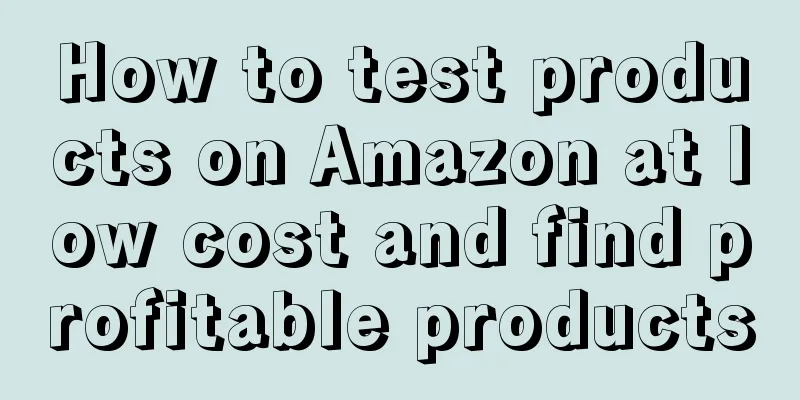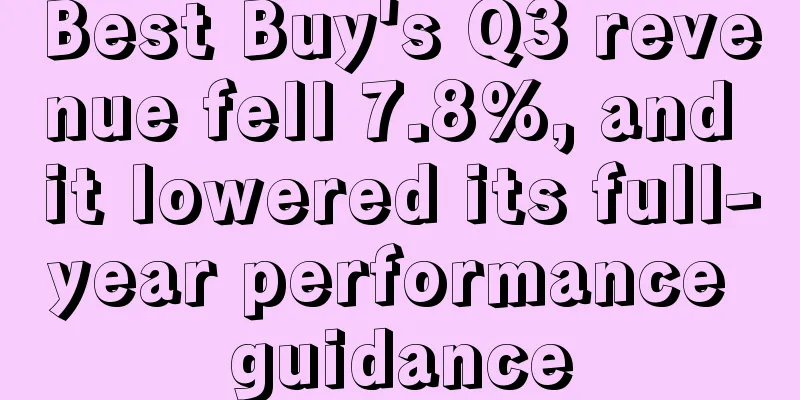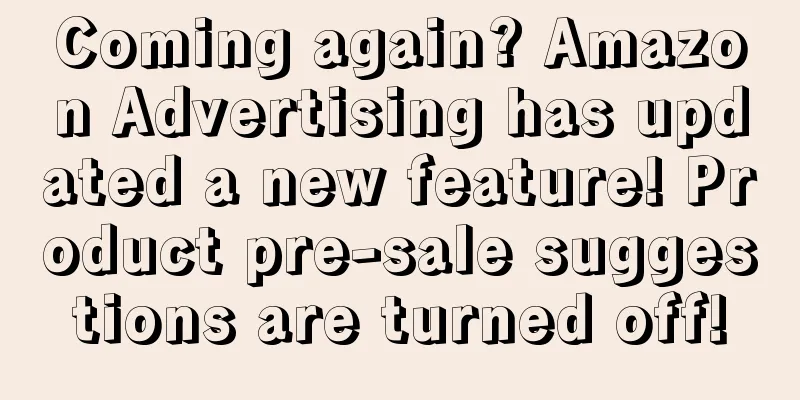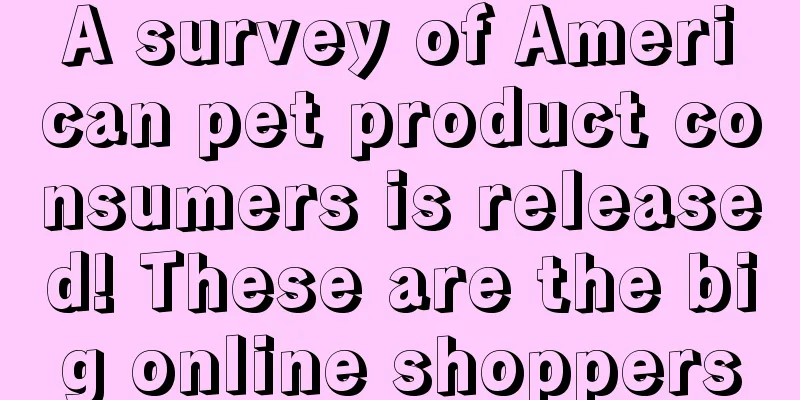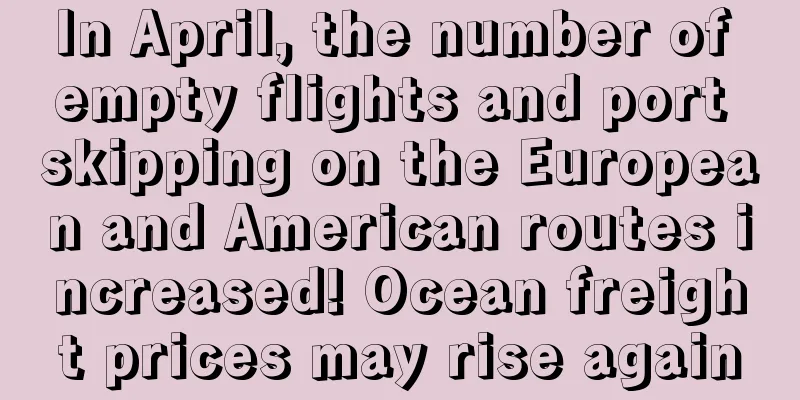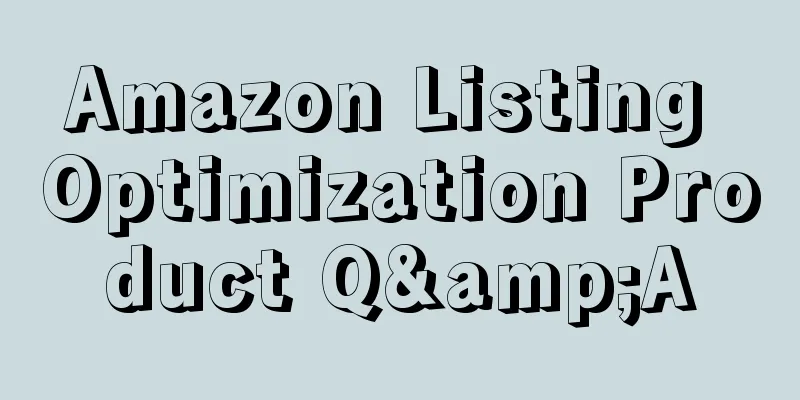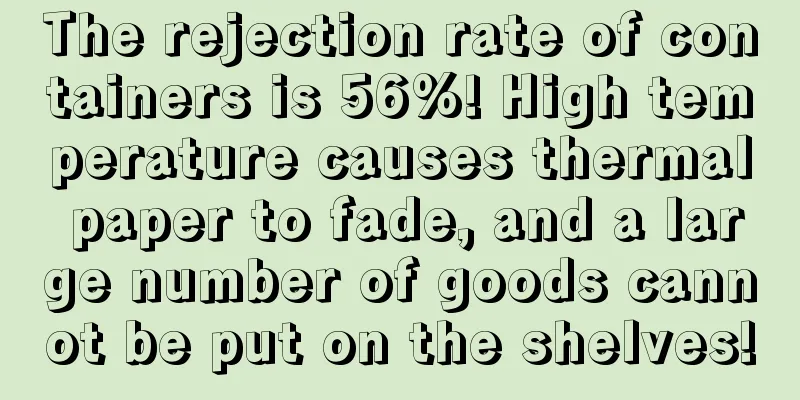What is the EU Free Sale Certificate FSC? EU Free Sale Certificate FSC Review
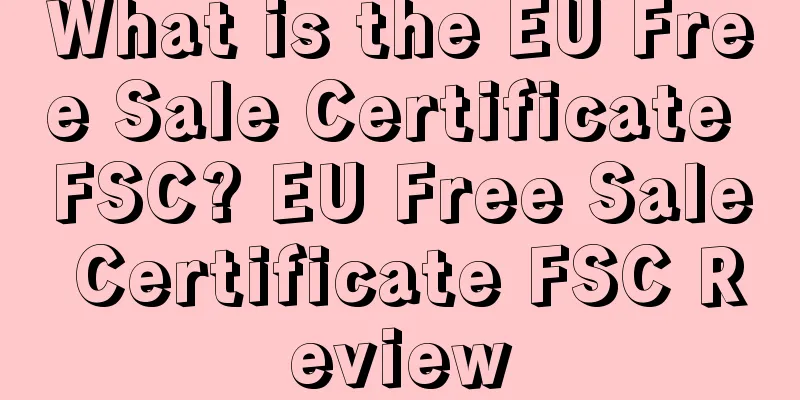
The EU Free Sales Certificate is also called the Export Sales Certificate. Its English name is : Free Sales Certificate, Certificate of Free Sale or Certificate For Exportation of Medical Products; abbreviated as : FSC or CFS. Basic IntroductionFree Sale Certificate, also known as Export Sales Certificate, is called Free Sale Certificate, or FSC for short. The content of the Free Sale Certificate usually proves that the corresponding product is a legally produced and/or sold product that meets the requirements of local laws and regulations in the issuing country. At the same time, the regulatory authorities of the destination country accept the validity of the certificate of the issuing country to determine that it also meets the regulatory requirements of the destination country, or as one of its evidence. backgroundThe free sale certificate originated in Europe. Initially, individual member states of the European Economic Area Agreement (EEA) and private associations within member states issued free sale certificates to local manufacturers in order to promote their products to third countries outside the EEA. The content of the certificate is to prove that the product meets the relevant national standards, meets the relevant directive requirements, is safe and reliable, and the quality meets the relevant requirements. It can be freely sold within the local scope of the country and is allowed to be exported. The original free sale certificate was issued by European private associations, chambers of commerce and other institutions, and was later improved by some European countries to form a system suitable for their own countries. This free sale trade barrier originated in Europe and has gradually been recognized by some countries in the world. When they import products, they will require the shipper of the goods to provide the corresponding free sale certificate. Scope of application In principle, any destination country may require a free sale certificate for some countries outside the EU member states. At present, from our experience, the countries and regions with more concentrated requirements are South American countries, Middle Eastern countries, Southeast Asian countries, etc. For example, Argentina, Australia, Bolivia, Brazil, Chile, Colombia, Costa Rica, Ecuador, Egypt, India, Iraq, Israel, Japan, Jordan, Lebanon, Mexico, Oman, Peru, Qatar, Russia, Saudi Arabia, South Korea, Sri Lanka, Syria, Thailand, UAE and other countries require the exporting country to issue a valid free sale certificate for its exported medical products before approving the product to be sold in the importing country. Classification1 National and industry associations; Products without industry regulatory authorities 2 National competent authorities, such as the Ministry of Health, Food and Drug Administration, Commodity Inspection Bureau, etc.; Products with industry competent authorities and meet domestic industry regulations 3 Issued by foreign competent authorities, such as the United Kingdom, the European Union, the United States, etc. Products with industry authorities but only meet export regulations As can be seen from the above table, as a manufacturer or export trader, you should choose to apply for an appropriate free sale certificate based on the product category and specific circumstances of your export. For example: 1. If you produce laboratory consumables, such as glass slides and cover slips, and there is no relevant industry authority in China, then your free sale certificate can either be issued by yourself and then stamped by CCPIT, or you can ask the relevant association to issue a free sale certificate. It should be noted that the association is not a government organization, but a social organization. 2. If you produce medical devices and already have product registration certificates and medical device production licenses in China, you can apply to the State Food and Drug Administration for the corresponding free sale certificate. Depending on the type of device, it may be issued by the national bureau, provincial bureau, or municipal bureau. It should be noted that this certificate is only issued to manufacturers, and must be issued by manufacturers with registration certificates and licenses. Goman knows, here comes the question, what should trade or e-commerce companies do if they want to apply for certificates? When manufacturers export products, and the product has not yet obtained a registration certificate and license in China, what should customers do if they need a free sale certificate? In this case, you can choose the third option mentioned above, a free sale certificate issued by a foreign competent authority. Conditions for Chinese manufacturers to apply for CFS1. Appointed an EU authorized representative and signed a written agreement; 2. Proof of the product's legality, including: a. If it is a Class I device, provide a DOC; b. If it is a Class I* IIA IIB III device, provide a Notified Body Certificate. Questions and Answers about Certificates Issued Abroad1. What are the main institutions that can currently issue free sale certificates for medical device products? Currently, the main drug regulatory authorities include the United Kingdom, the Netherlands, Germany and other countries. 2. What conditions must be met to apply for a certificate from a foreign competent authority? In principle, it should be ensured that the product meets the regulatory requirements of the country/region of issuance. For example, in the EU, high-risk products need to have a CE certificate, and low-risk products must be registered first. 3. What is the validity period and application success rate of these national certificates? Serial Number Country Validity Period Application Success Rate 1. For low-risk products in the UK with unlimited validity, as long as they can be found in the global medical device database, and for high-risk products with a CE certificate, they can basically apply for a CFS certificate. 2 In the Netherlands, as long as the five-year low-risk product can be found in the global medical device database, and the high-risk product provides a CE certificate, you can basically apply for a CFS certificate. 3 Germany makes a judgment based on the product instructions and intended use every two years, and a certain proportion of cases where a certificate cannot be applied for. 4. Are there any requirements for the destination country when issuing certificates? At present, the destination countries of these certificates can be all countries in the world except EU member states. Because EU member states have the same regulatory requirements as the countries that issue the certificates, they are not included in the scope of the certificates. In other words, if you meet the conditions for applying for a free sales certificate, you have already met the conditions for free sales in the EU. 5. After Brexit, will the free sale certificate issued by the UK Medicines and Healthcare Products Regulatory Agency still be valid? To answer this question, we need to understand the purpose of this free sale certificate. The free sale certificate is to prove to third-party countries that the products they intend to purchase have obtained the sales qualification in the country that issued the certificate and meet all its regulatory requirements. In this sense, the more authoritative and prestigious the competent authority of the issuing country is internationally, the more effective its certificate will be. The Medicines and Healthcare Products Administration is currently a national competent authority with the same influence as the US FDA in the world. In particular, with its language advantage and perfect regulations, the effectiveness and influence of the Medicines and Healthcare Products Administration's certificates will not be affected by Brexit. 6. Why does the certificate need to be certified by the Hague or the embassy? Some countries require that certificates be certified by the Hague or embassy before they can be used locally. This is done to ensure the authenticity of the document. The prerequisite for apostille is that both the destination country and the issuing country are members of the Hague Convention, and it must be completed by the relevant British departments. For example, for a certificate issued by the United Kingdom, the United Kingdom is a member of the Hague Convention, so as long as the destination country is a member of the Hague, such as Argentina, apostille can be carried out. If the destination country is not a Hague Convention country, such as Saudi Arabia or Egypt, embassy certification is required. Embassy certification is completed by the embassy of the destination country in the issuing country. Currently, all CFS in Europe are only issued to companies located within its territory, which can be manufacturers, EU representatives and other institutions. References |
>>: What is Fiverr? Fiverr Review
Recommend
What is Sellery? Sellery Review
Sellery is a simple app that gives you control ove...
Amazon, Facebook, and Google were all named in the case for favoring their own products
It is learned that on July 20, the U.S. House Judi...
The secret of how to pass the video verification for old accounts! I won’t allow you to not know!
Recently, Amazon video verification has been tight...
What is Yijiehui? Yijiehui Review
Yijiehui is a brand under Yijifu, which has a thir...
What is pjpauljones? pjpauljones review
pjpauljones is a website focusing on men's clo...
What is EvaluationEasy? EvaluationEasy
Massive real-person evaluation, safe and stable ev...
Mexico's online payments market is growing exponentially and is expected to reach $21.8 billion in 2024
According to Statista, more than two-thirds of Mex...
What is ShopAtHome? ShopAtHome Review
ShopAtHome.com is a famous discount coupon website...
[Avoidance Guide] Step-by-step guide to finding reviews on Facebook
Today I will share with you how to accumulate you...
The US holiday shopping season starts early! More than 40% of people look for deals on social media!
A new survey shows that Americans have already sta...
Force sellers to lower prices? Temu opens bidding mode for the same product!
According to the latest global e-commerce shopping...
What is SocialOomph? SocialOomph Review
SocialOomph.com is a social media management tool ...
US retailers face tough transition as suppliers forced to cut purchases
US retailers are in an unprecedented inventory cri...
TikTok marketing is all the rage in the fashion industry! It may become the next growth engine for fashion e-commerce
<span data-shimo-docs="[[20," ","...
Emergency! Many countries strengthen blockade! Logistics are affected on a large scale...
The COVID-19 epidemic has not "abated" w...
